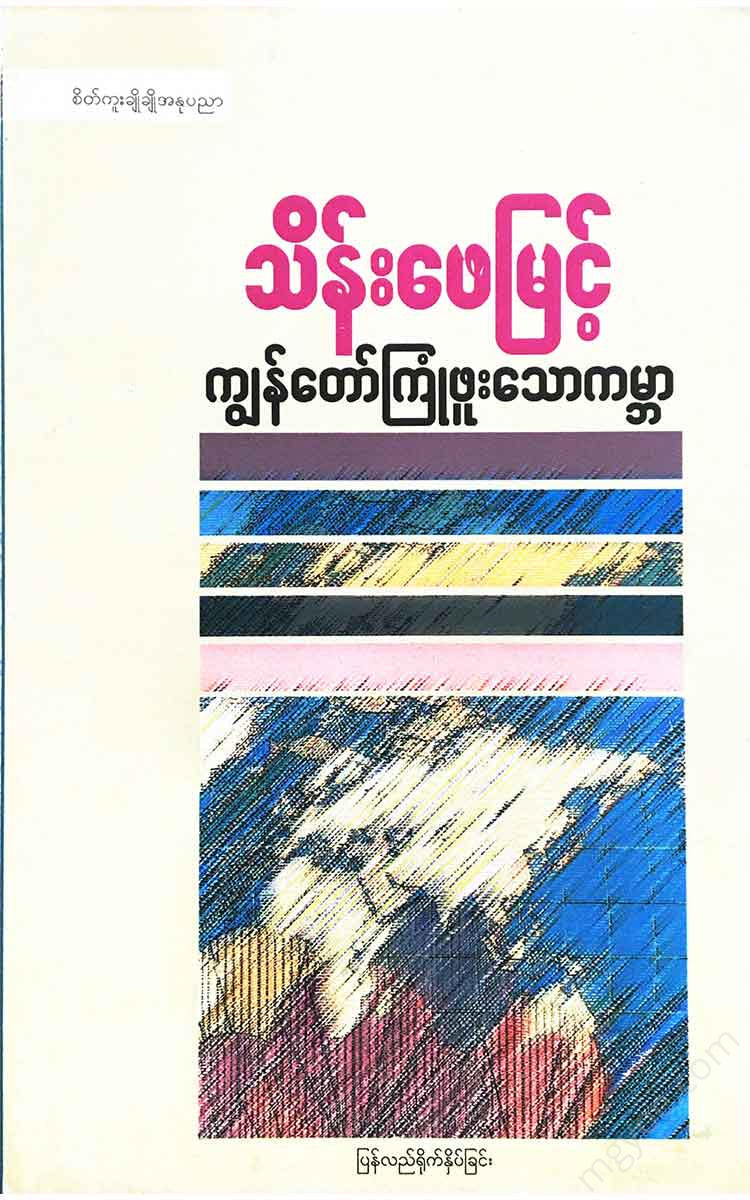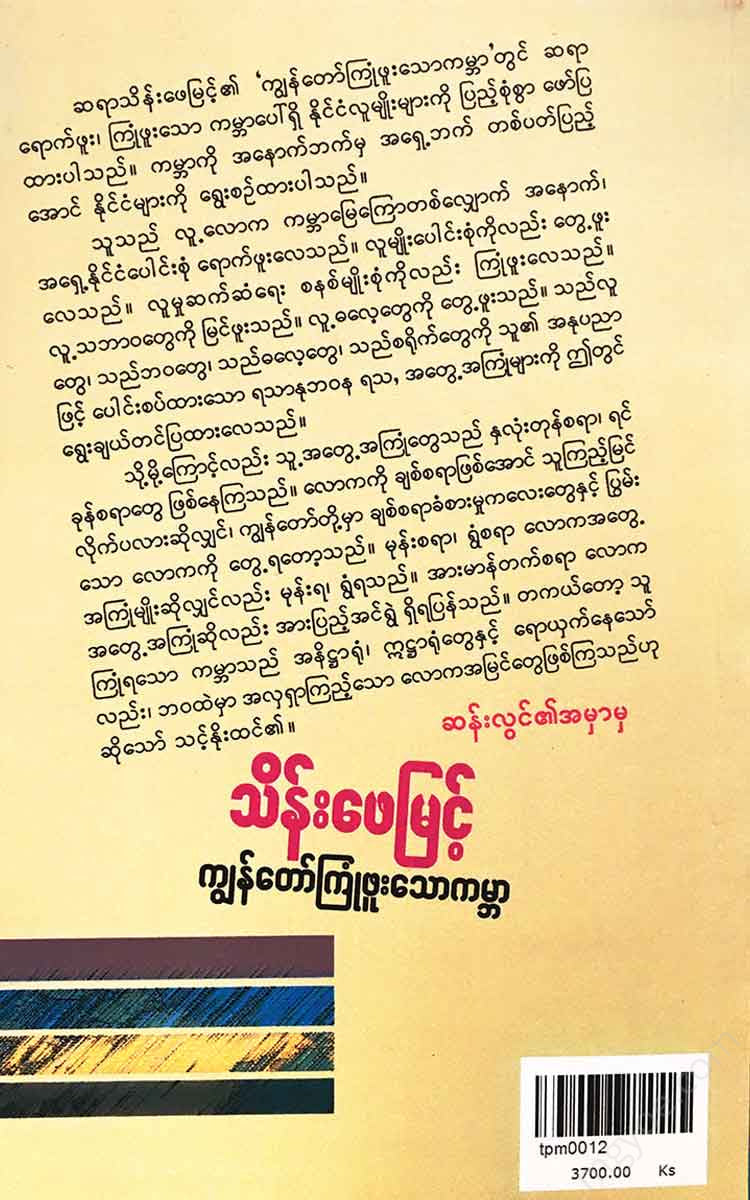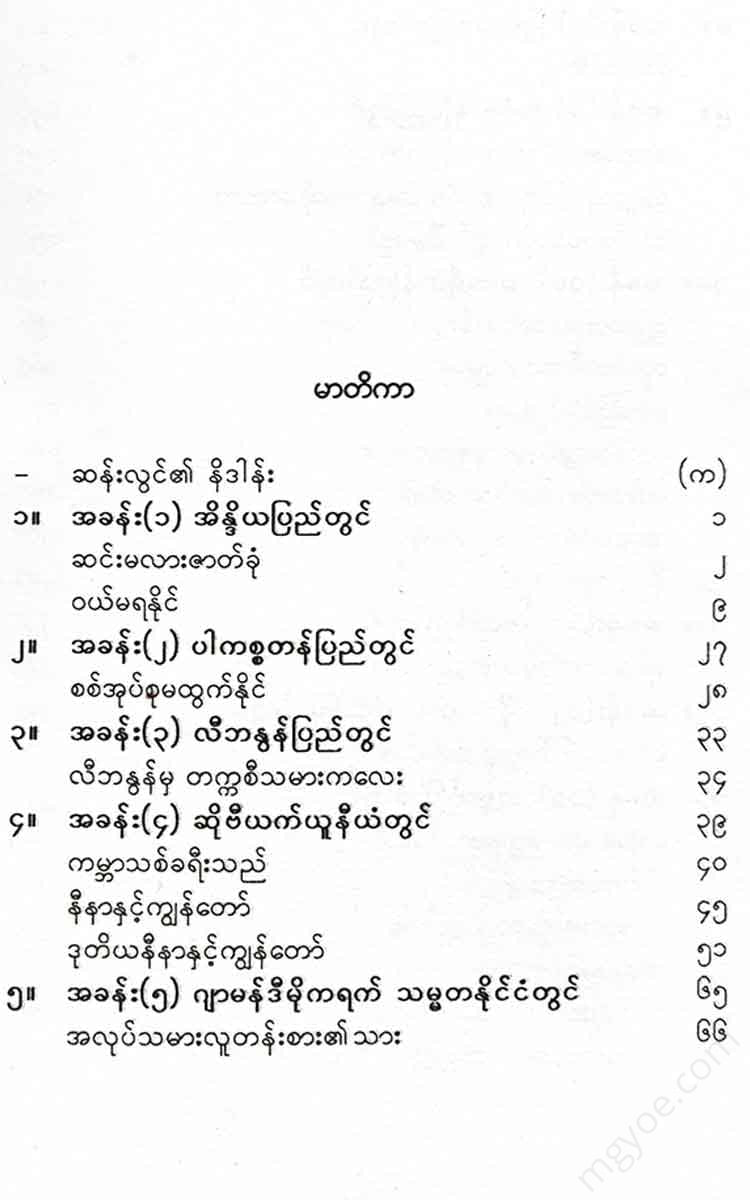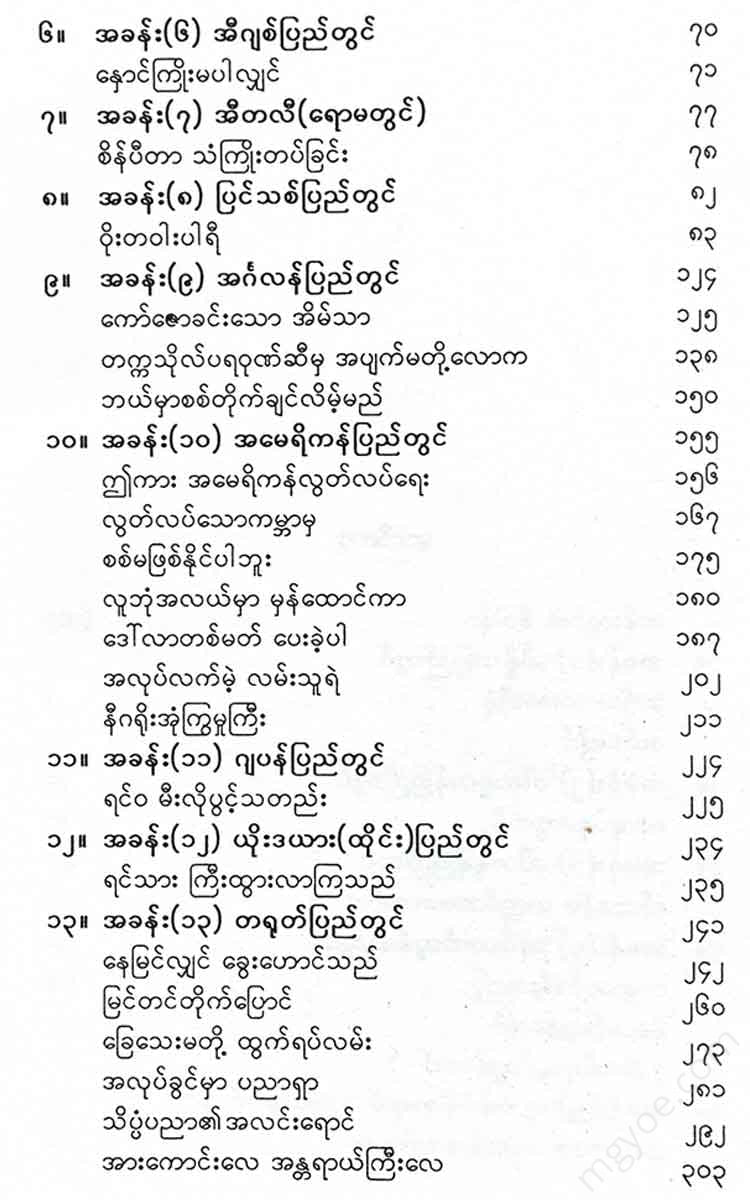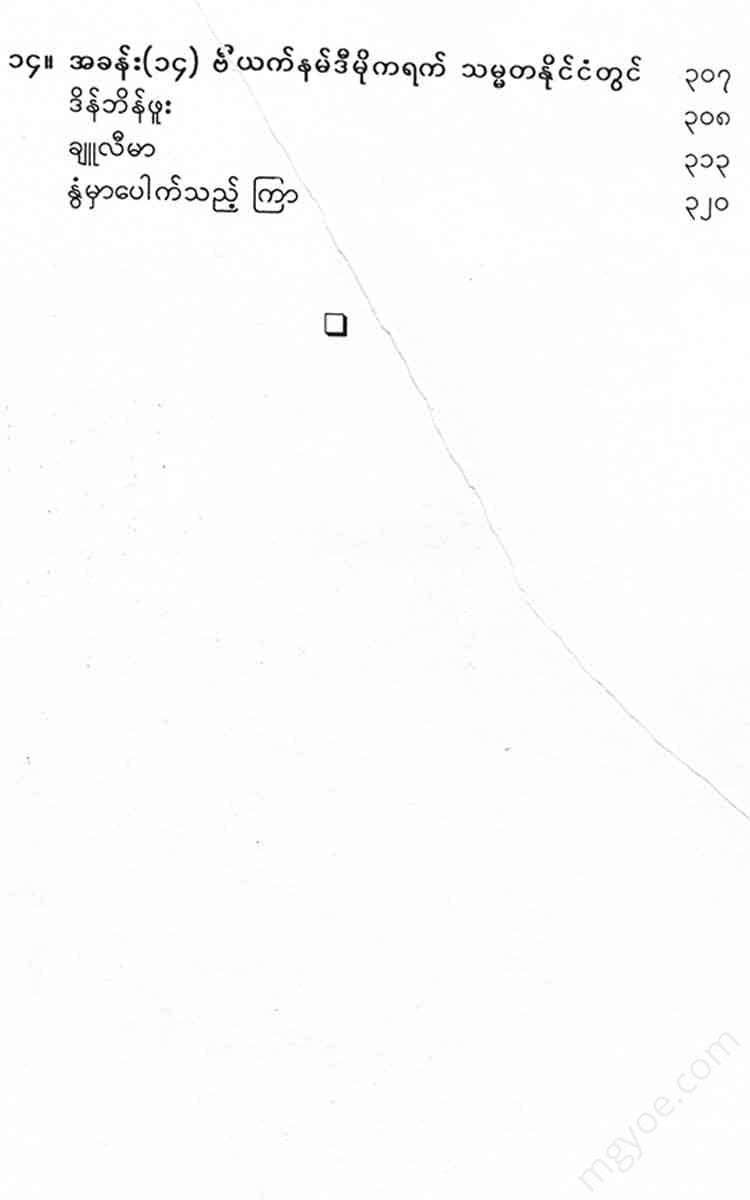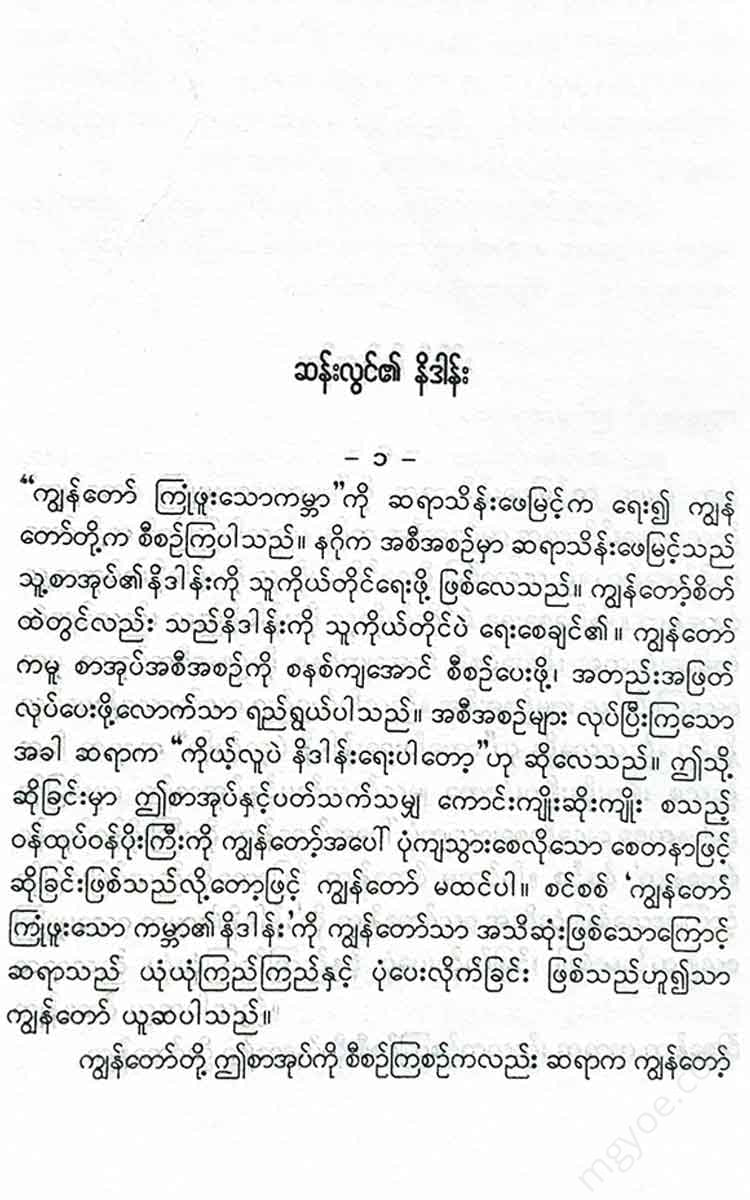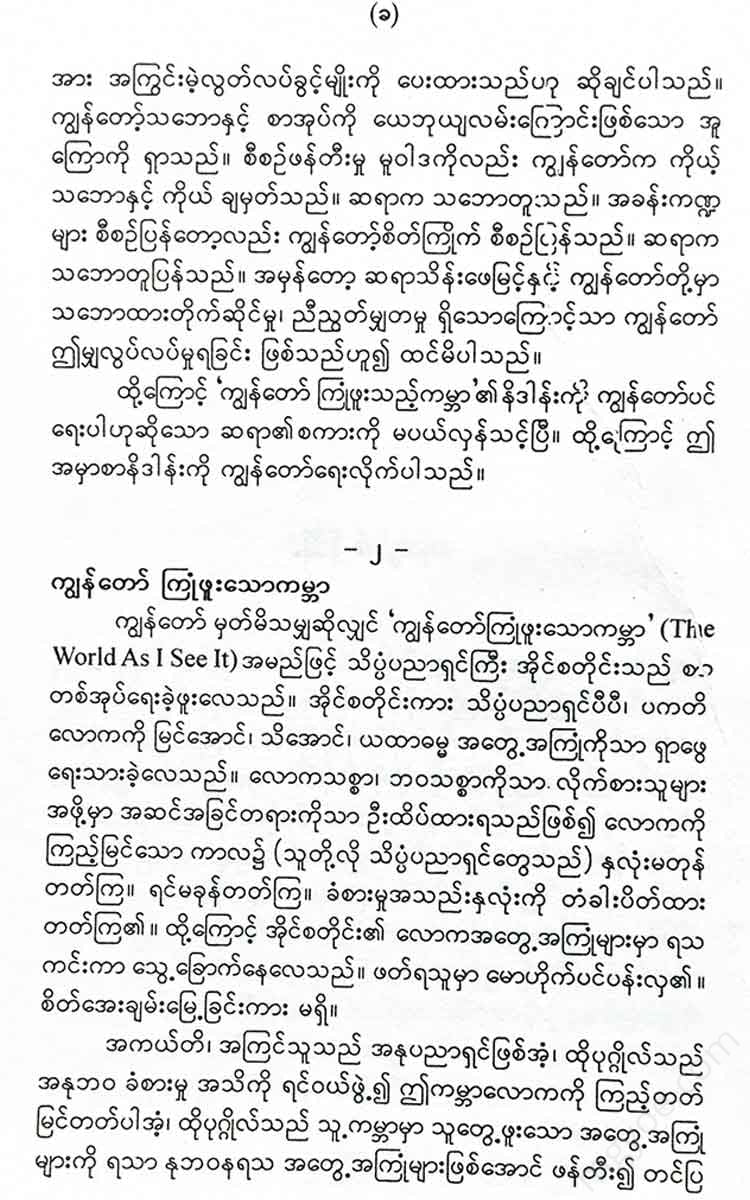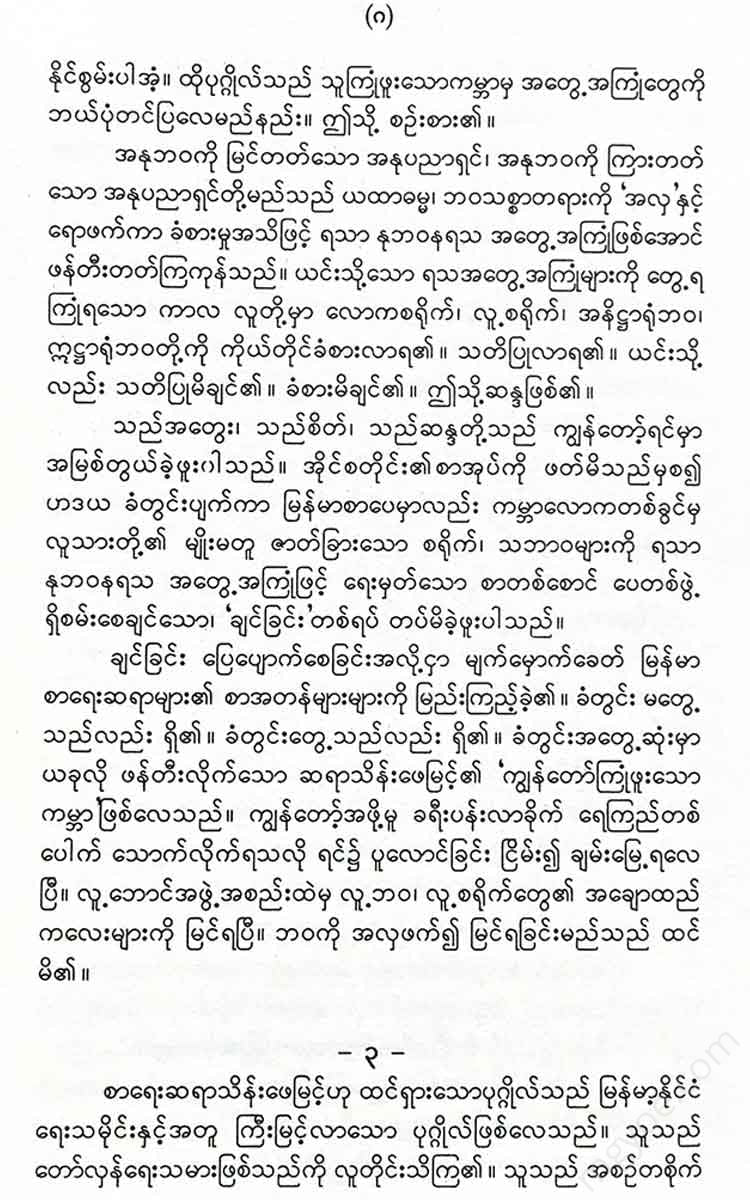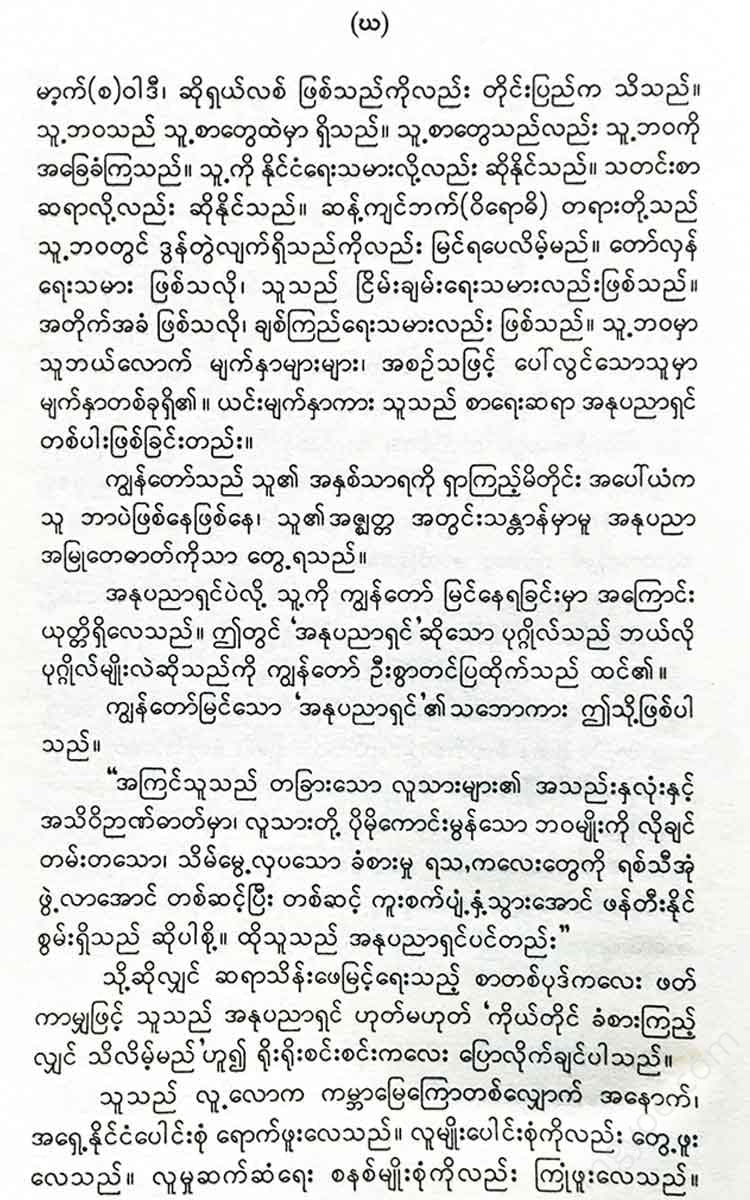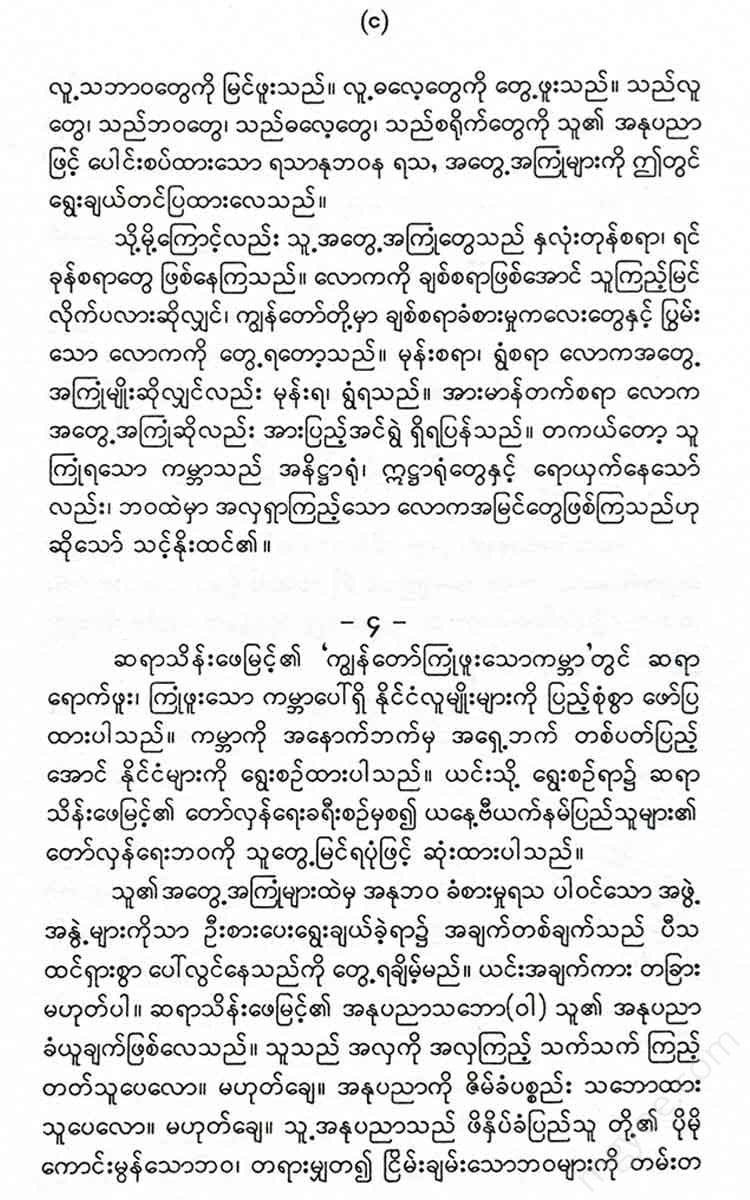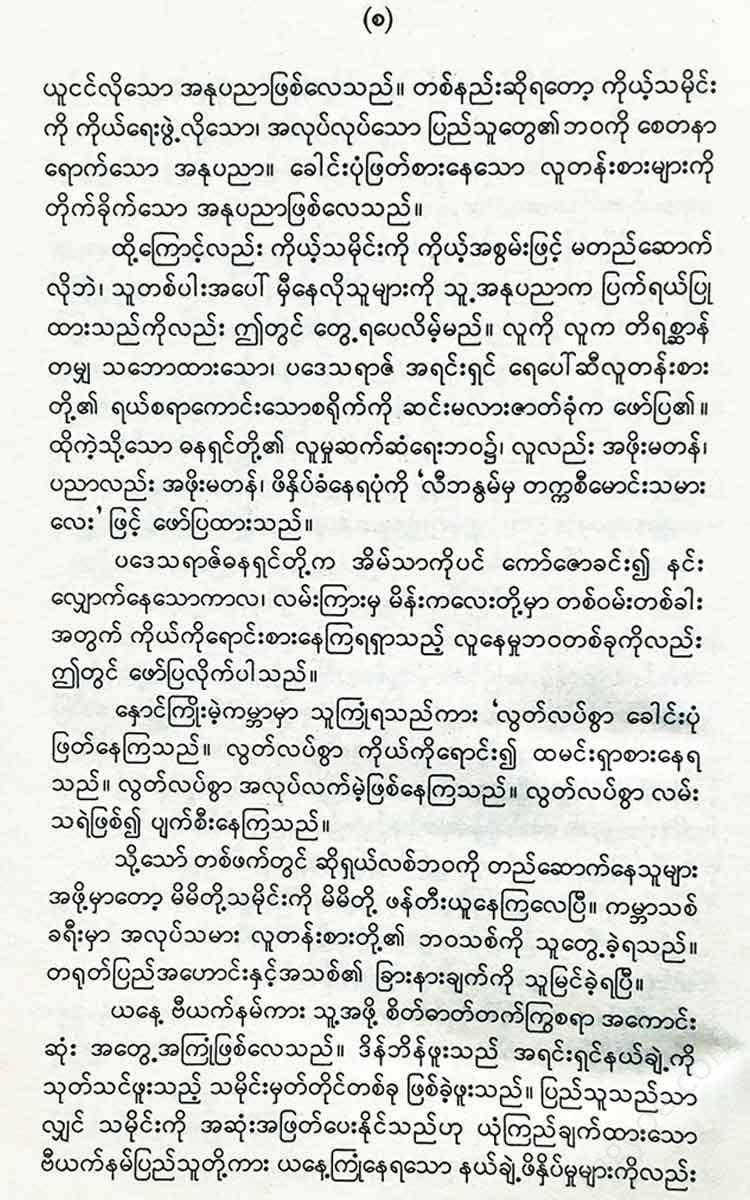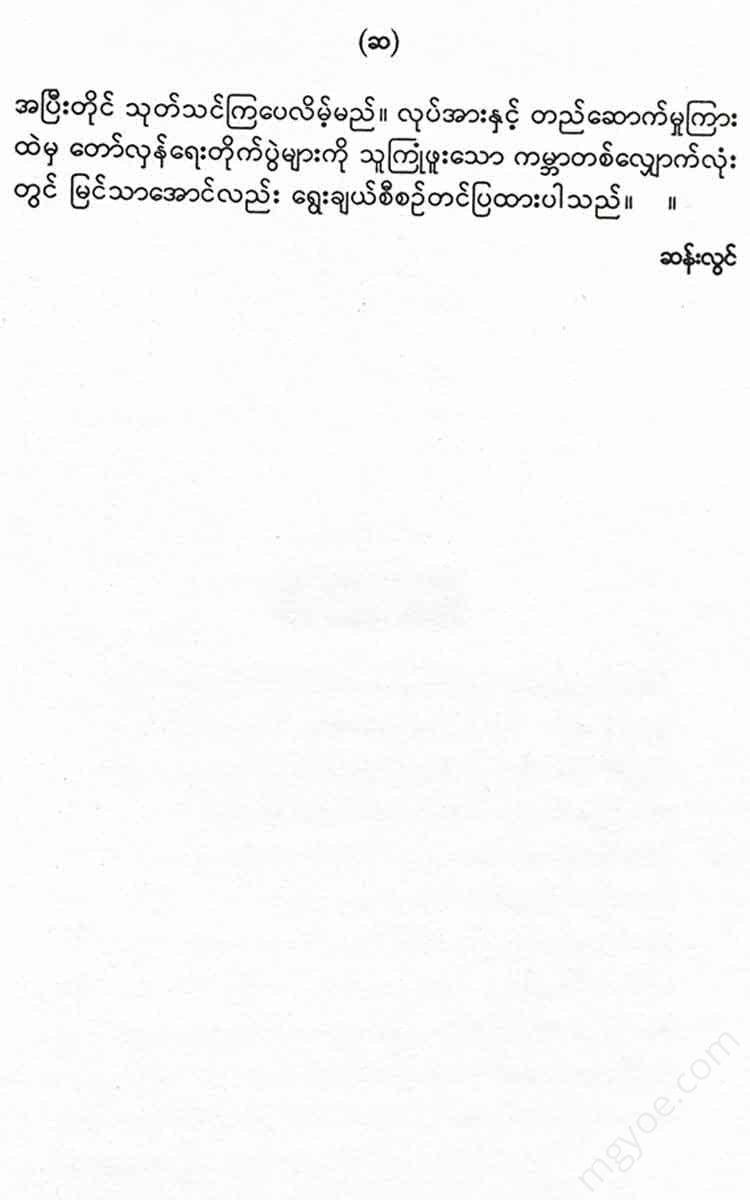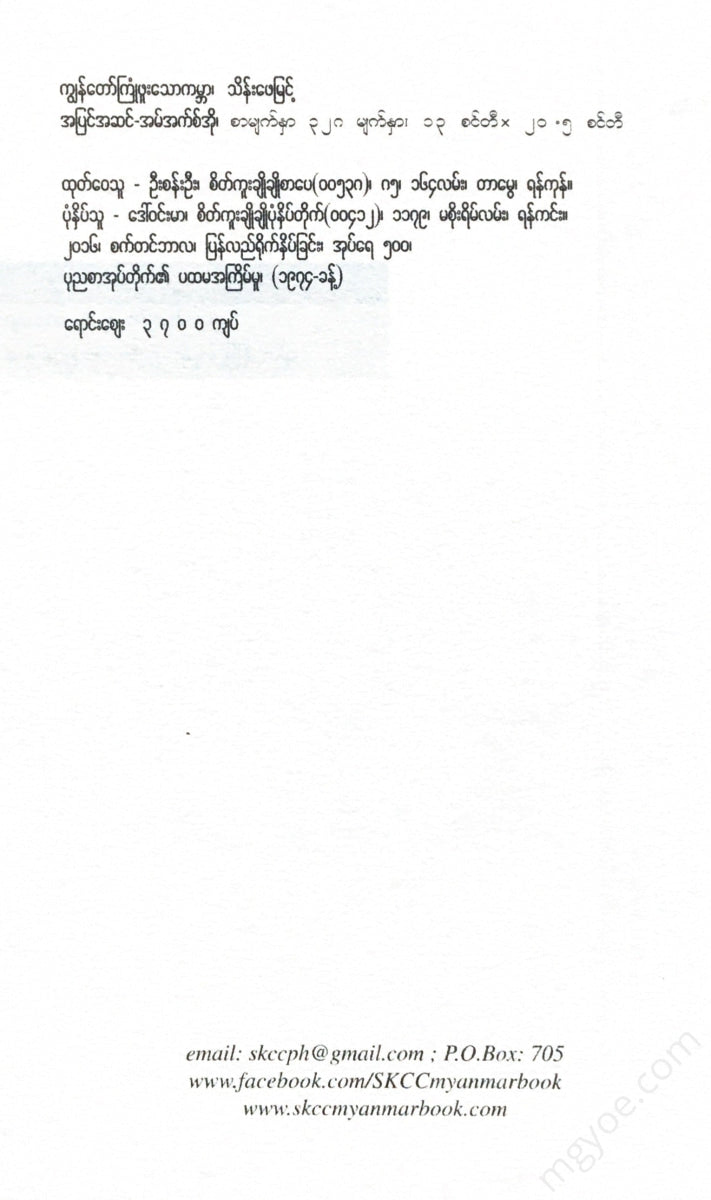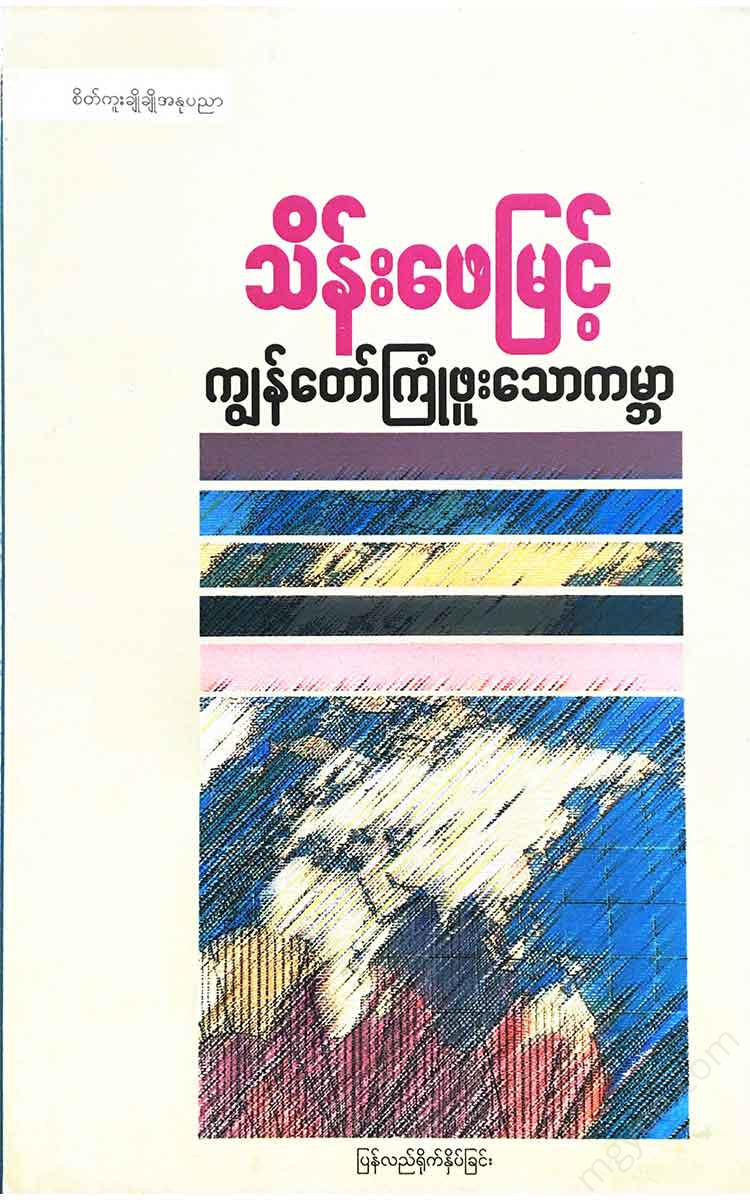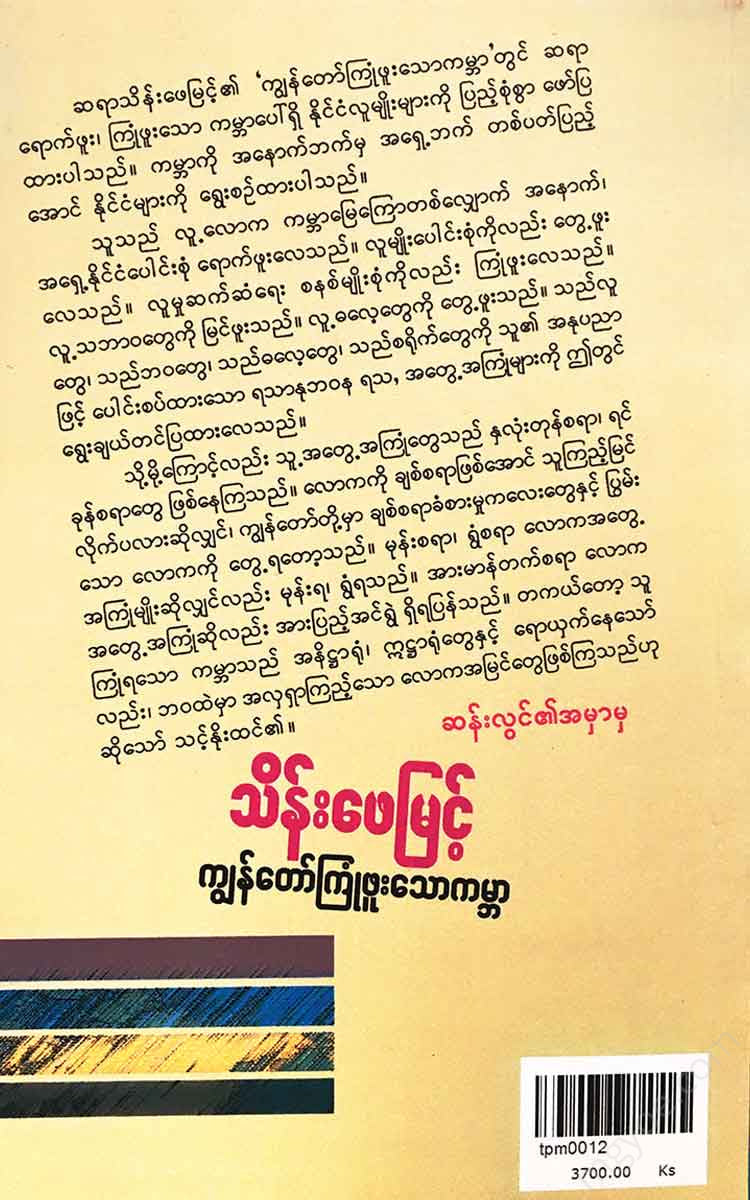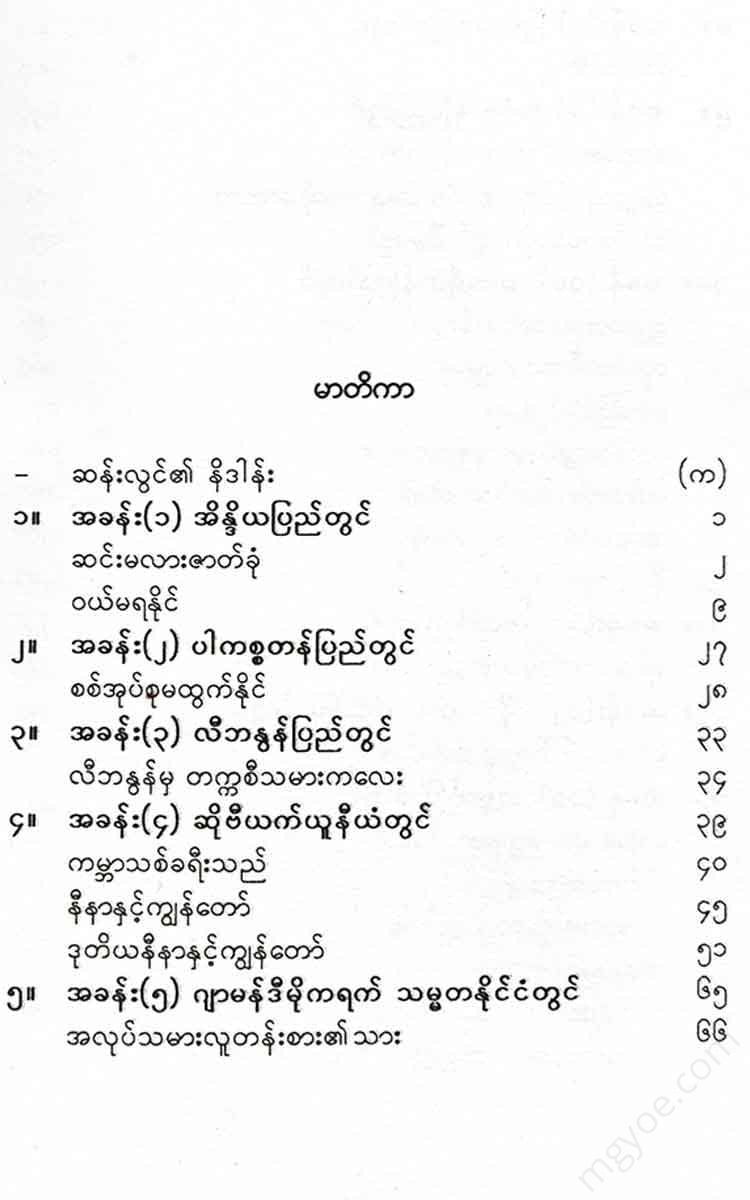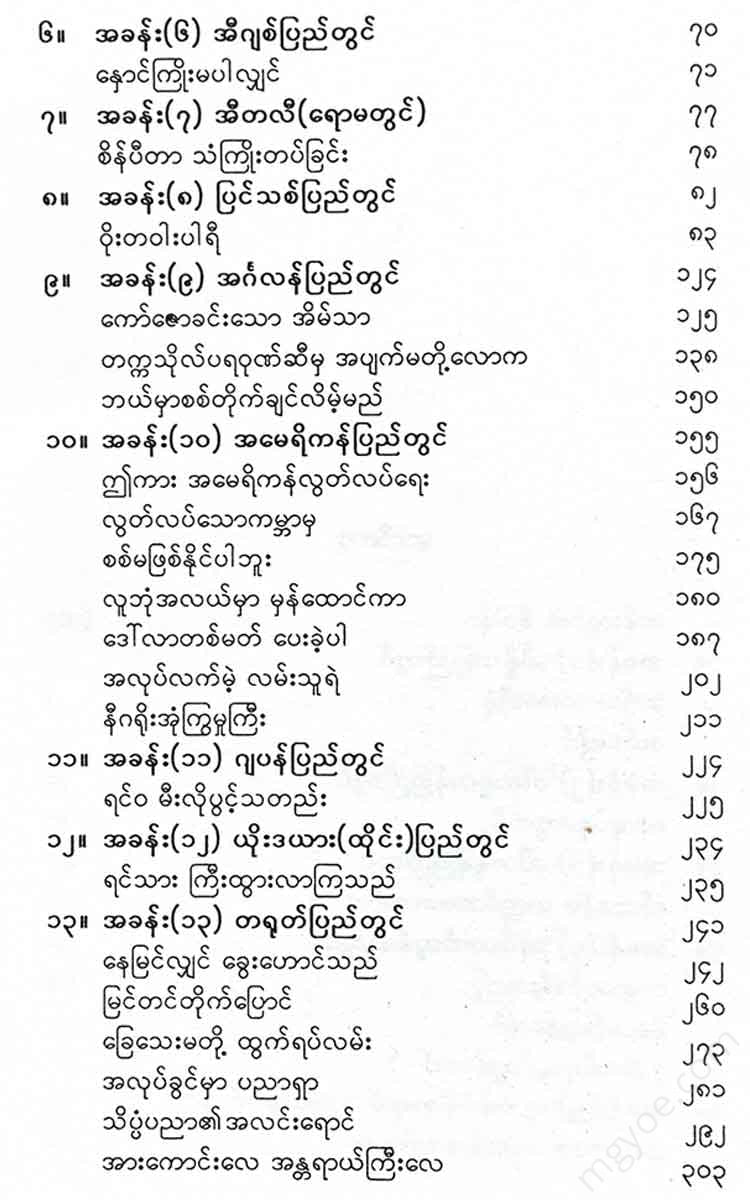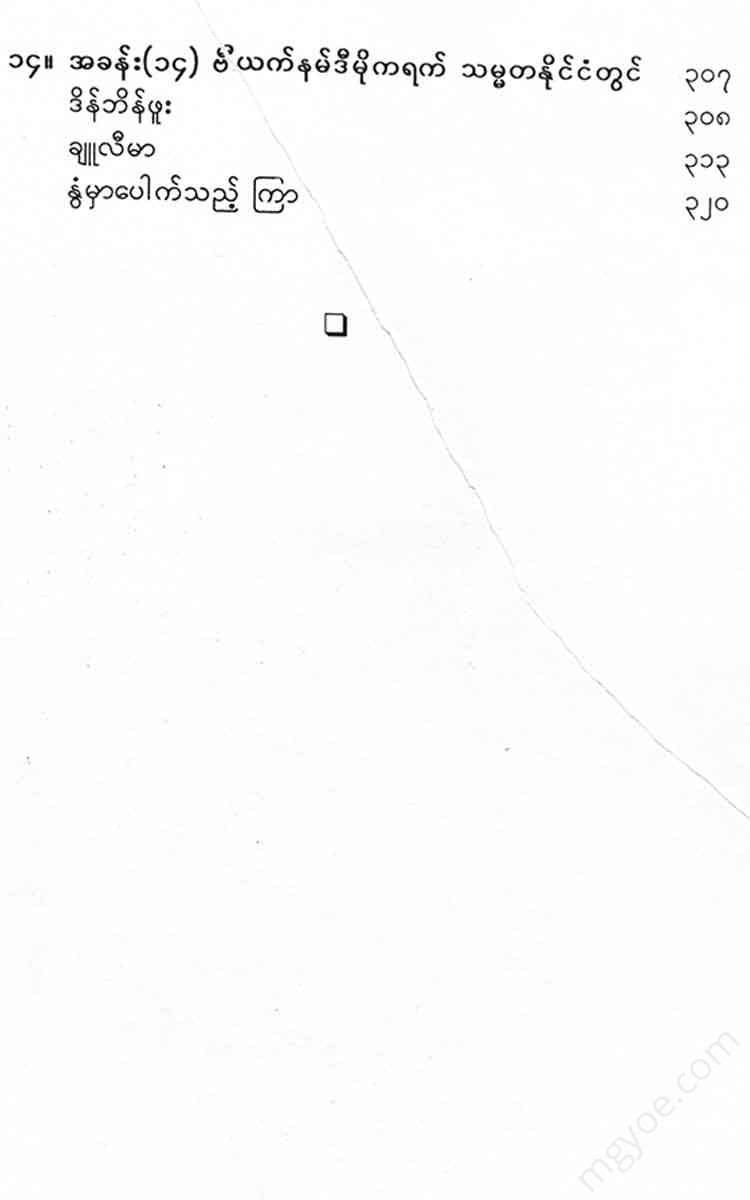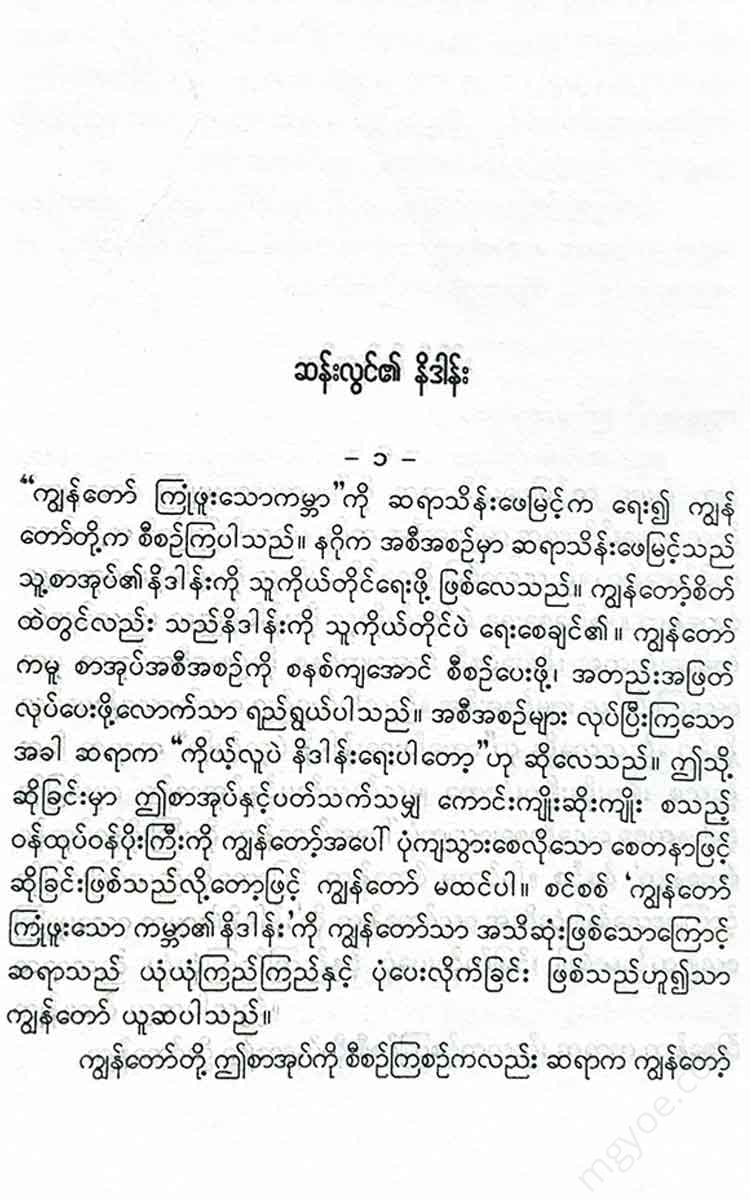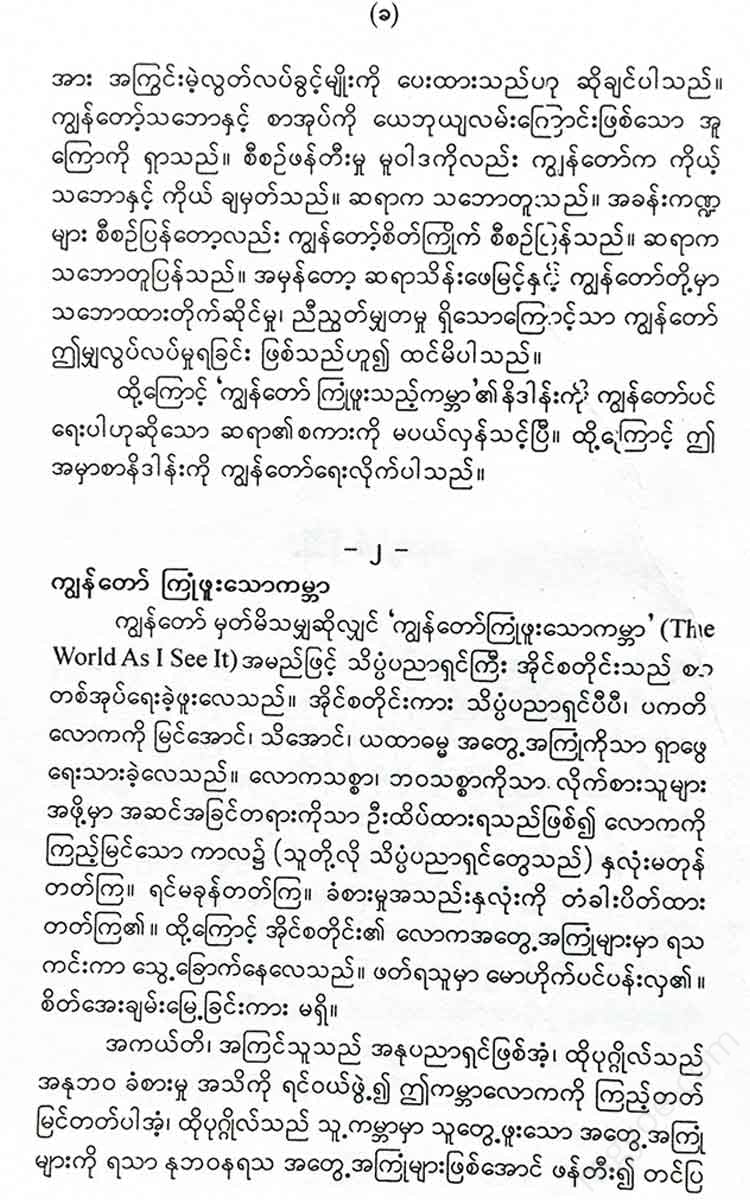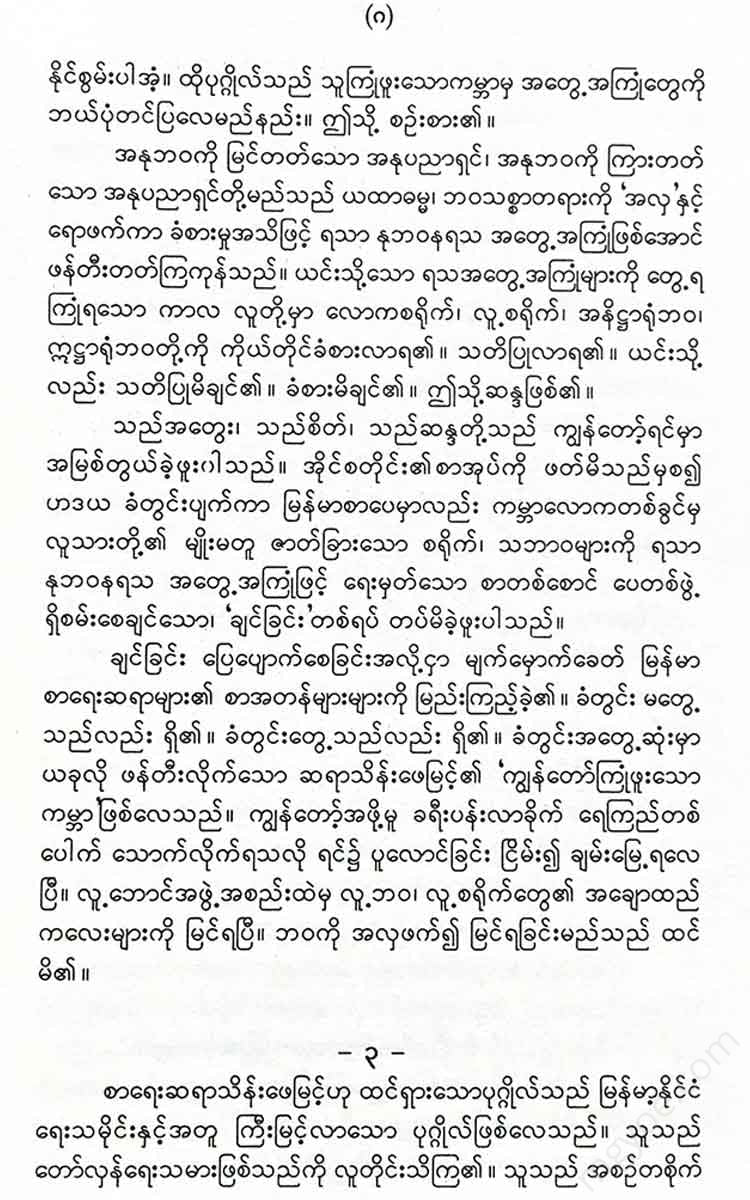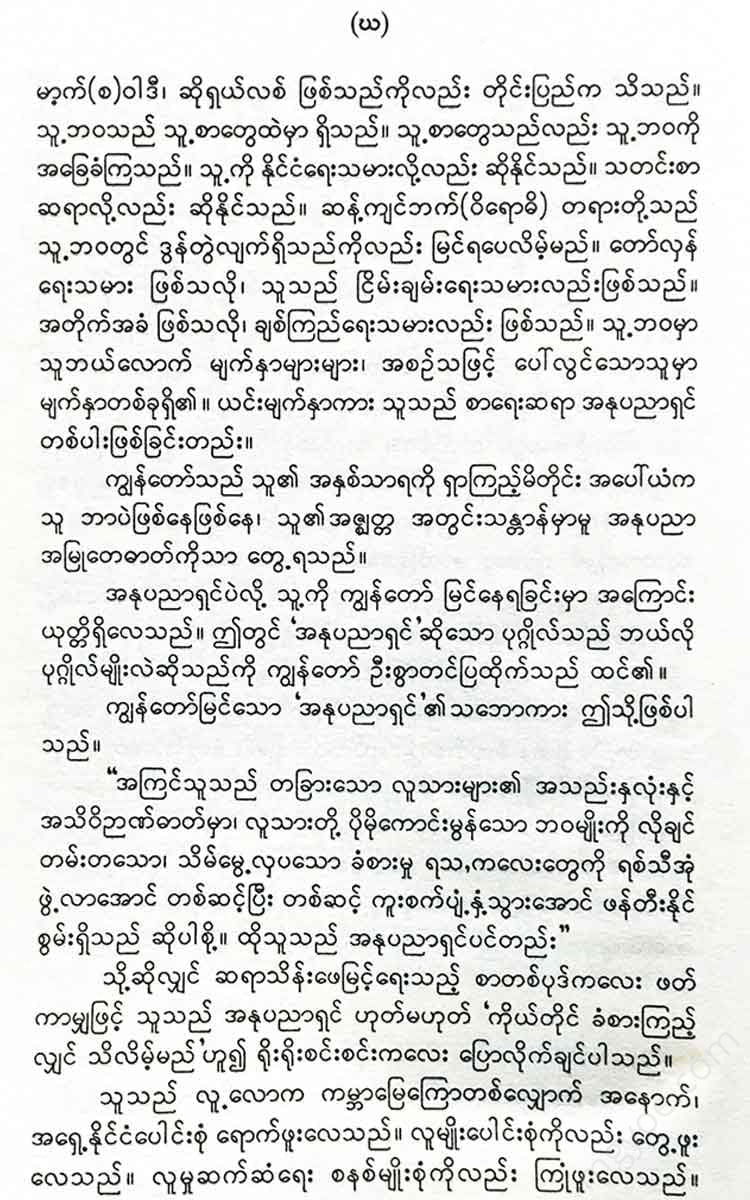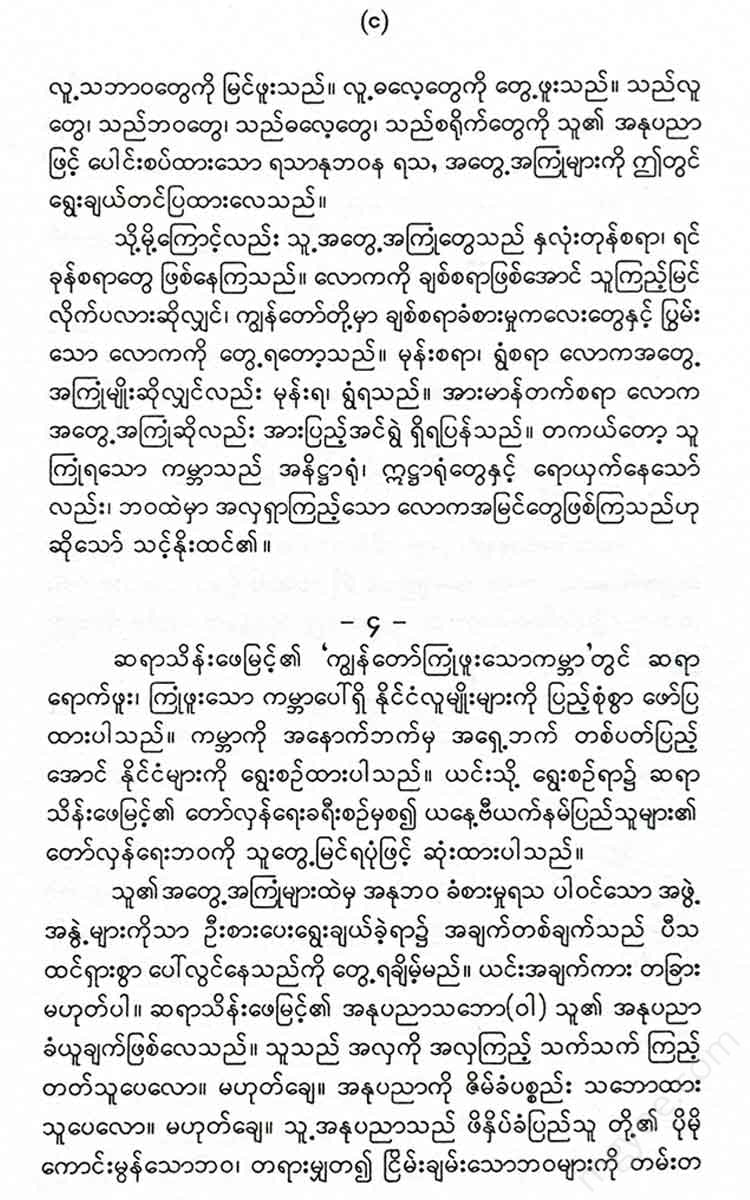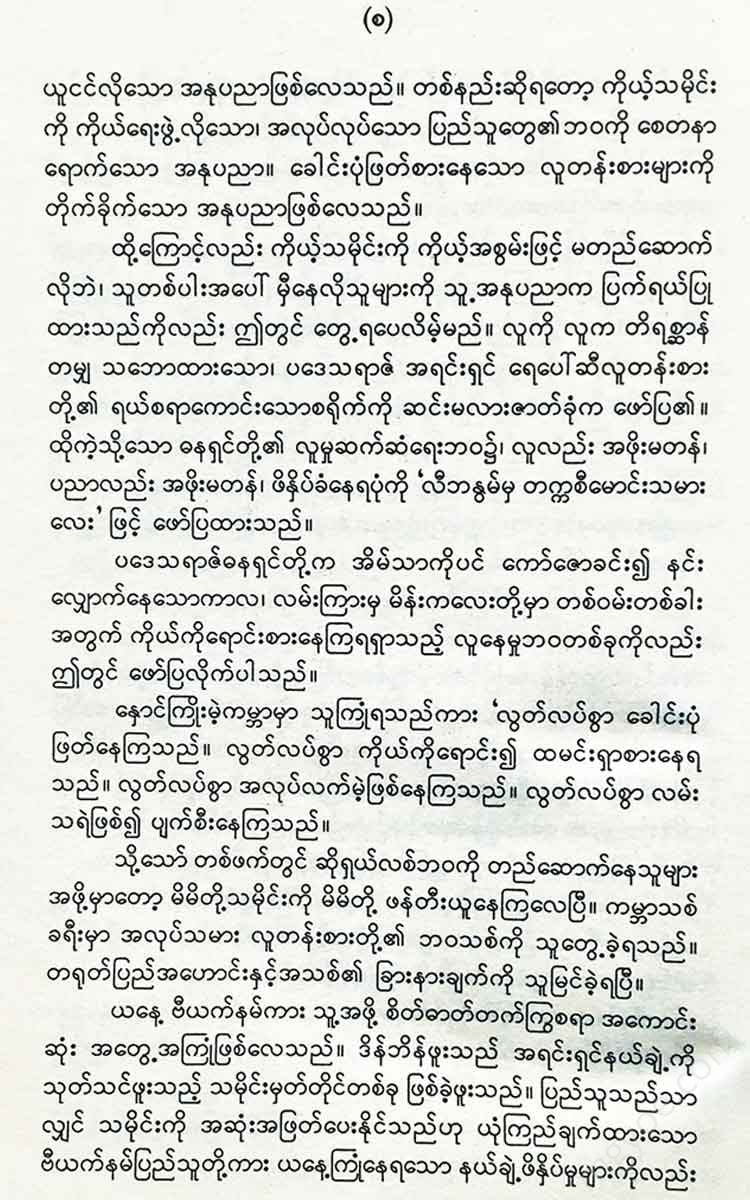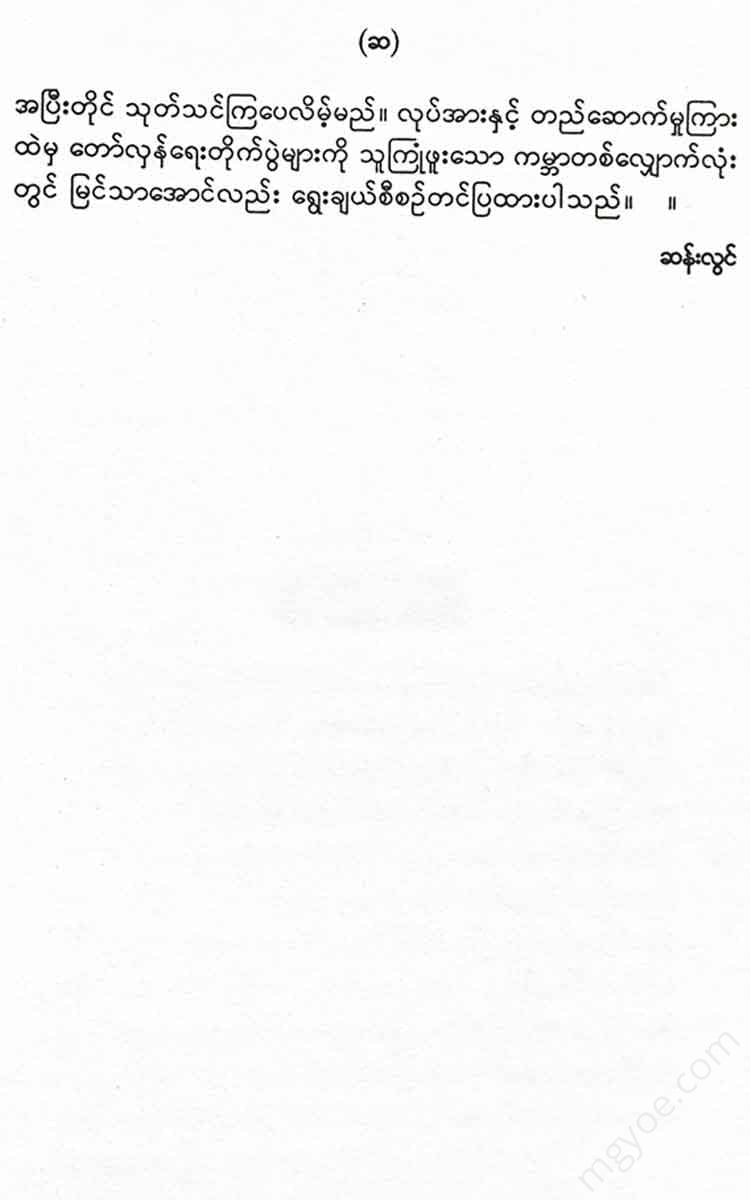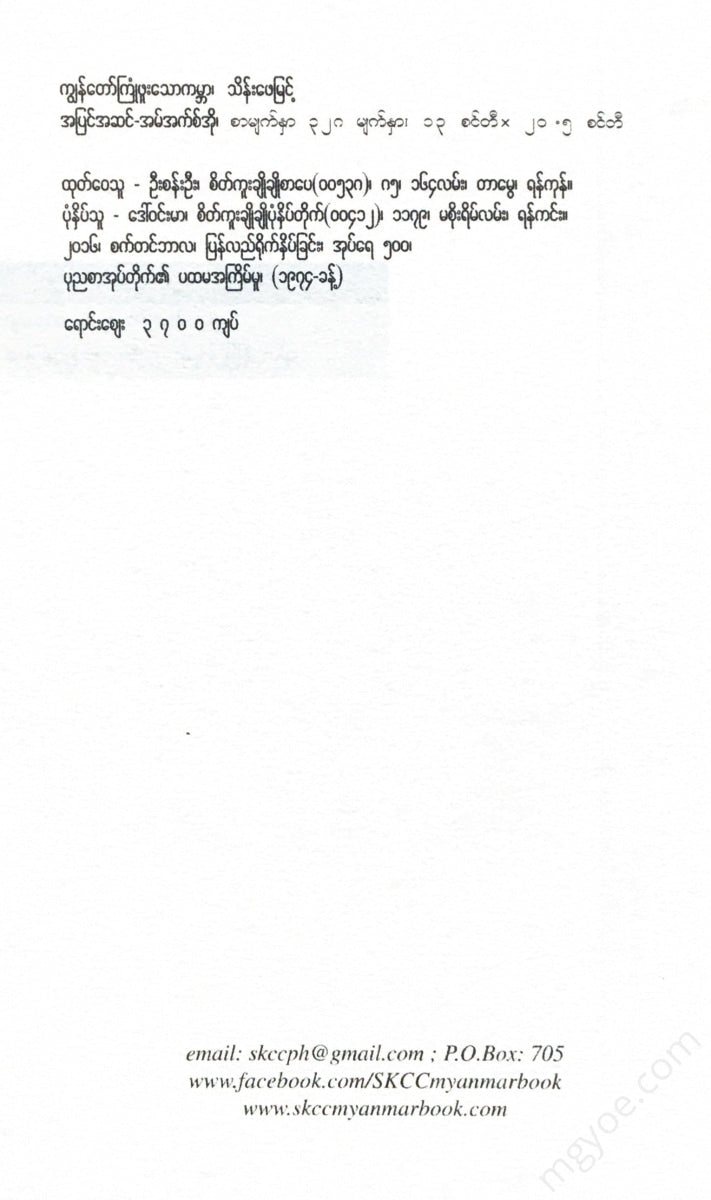စိတ်ကူးချိုချိုစာပေ
Thein Pe Myint - The World I Have Experienced
Thein Pe Myint - The World I Have Experienced
Couldn't load pickup availability
In 1942-43, Burma was under the colonial rule of the fascist Japanese. At that time, the British-backed Burmese government was in exile in India. Thein Pe Myint and Yebaw Tin Shwe, who were engaged in anti-colonialism and underground resistance, were also in India. Both of them, who were active as underground revolutionaries, were under arrest by the Indian government. They were taken to Simla, where the Burmese government was in exile.
This is how Thein Pe Myint saw the "Sinma Stage" with a sense of childhood.
"Cannot Be Bought" will show how the two comrades' joint activities with the Communist Party of India, in keeping with the dignity of cherishing their nation for life, are also mixed with wealth and experience.
On the stage, come down.
In our report to the Indian government, we stated that we wanted to meet with the great Indian communist leaders, such as Mr. Muzaffar Ahmed and Mr. Dangay. In addition, we also heard that a Bengali communist named Mr. A. Ingoshel, who had returned to Burma, had now arrived and wanted to meet him.
But we did not meet anyone. The government authorities did not allow us to meet, so we thought we would not meet. However, in 1943, when I went to the Communist Party headquarters in Bombay, I found out that Ghoshal was also in Delhi when I arrived in Delhi. The Communist Party of India had made secret plans to fight the fascists from behind, and there was also an understanding with the British authorities and mutual assistance. Mr. Ghoshal was recognized by the Communist Party of India as the leader of the Communist Party of Burma and was actively involved in this work. The group that was later to carry out the tasks of sabotage, information collection, and communication with the anti-fascist forces was called Foce 136. The leader of this group, Mr. Mackenzie, told Ghoshal that we were there and that we wanted to see him. Mr. Suntaeya, a member of the Central Committee of the Communist Party, also accompanied Ghoshal. Ghoshal suddenly let go…
"Ha ha, Thein Pe, this man once wrote an anti-fascist book. But he's a sloppy guy. We can't trust this man. We can't find him either," he said.
So we were not allowed to meet at that time. Suntaya and the Communist Party Secretary Joshi severely criticized Ghoshal for his refusal.
"Sala, are you saying these things because Mackenzie is your father? Father Thein was not to be trusted before the war. Don't you understand that a war with Japan entering his country can change people?"
I learned these words after reading Su Nweya's report at the party headquarters.
Thus, August has ended and September has arrived. Even Delhi, which is usually so hot that it seems as if the entire sky has become a baking oven, is starting to feel a bit more pleasant. A gentle breeze is blowing. The clouds are drifting by.
However, our lives are not yet happy. We still can't go where we want to go. We still can't do what we want to do. We are still tied up in a kind of confinement.
Mr. Long, the representative of General One, appealed to the Indian government, but they did not let us go. Meanwhile, we were ordered to go to the Burmese government in exile in Simla. We were happy to be moving somewhere. We were almost elated at the prospect of a peaceful Simla. But the prospect of meeting the Burmese government in exile was not encouraging. They had been terrorizing the Burmese people with their big iron-clad boots. When the Japanese came, they had taken off their trousers and fled without being recognized, but they were still wearing their big iron-clad boots and trampled on the Burmese people. Now, in Simla, they have not only put on their trousers but also greatcoats. They are repairing the iron-clad boots that have been worn out by running.
Simla is located at an altitude of 7,000 feet in the Himalayas, so it is quite cool. It still rains well in September.
The Delhi Police Crime Branch escorted us to Simla, and the Simla Police received us. When we left the station, we went straight to the Burma Government Police Headquarters. The Police Headquarters was not very impressive. It was located on the ground floor of an old building. The area around Simla was very steep, so one side of the building seemed to be hanging on the side of a mountain. The ground floor of the Police Headquarters was like an underground bomb shelter. It is not known whether the military government is still looking for bomb shelters.
We first met Mr. Jap, who was examining us in Delhi. After saying goodbye, Mr. Jap took Ko Tin Shwe and me before the police chief.
Who do you see? He is wearing a British uniform, but the stars on his shoulders are a sign that he is not from the military, but from the police.
I don't know if it was because he had no work, or because he had done everything he could to make it clear. The table in front of him was clear. A short stick, about the size of a shiny five-ounce cane, was visible on the table. Just as a baton is a policeman's badge, this stick is a police chief's badge. His hair was neatly combed. His beard was brushed away so that no shadow could be seen. When we came to him, we tried to straighten him up and make him sit up, but his back was still hunched. There was no sign of a smile on his face. There was only a sign of a frown. Because I had never seen him smile before. It was rare to see him like this, so he smiled and greeted me. He didn't smile. He didn't say goodbye. He didn't give me a seat. I thought it was okay if he couldn't smile because he had to stretch his back to sit up straight. But he...
"Do you know me?" he asked.
"I know, you're Mr. Prescott."
"When was the last time we met? Do you remember?"
“I remember. The last time we met was in 1938 when you were the Rangoon Police Commissioner and sent me to prison.”
"Remember that, be well, and let's go."
This is Mr. Prescott, the police chief of the exiled government. The Burmese men, whom he used to envy, are far from him. Therefore, he seems to have thrown his anger and his gifts at me, who am close to him. We are put in a hotel in the city. The police are not always waiting. They take us out when we want to go out.
Sinma is a beautiful city. Wherever you look, you can see huge waves rising and falling, one after another. The mountains near are green. The mountains not far away are brown. The mountains further away are dark. There... there are white peaks in the distance. Those peaks are covered with 12-season snow. They shine white in the daytime, making them look like silver mountains. In the morning and evening, they shine like gold in the red sun.
We are not Indians, but we can say that we grew up in the shadow of the Himalayas. We have been familiar with the Himalayas since we were literate and could read the stories of the epics. The praise of the Himalayas in the Vaishnava Jataka is as if painted with indelible paint on our sacred texts. If we want to take a break from the hustle and bustle of the human world, we should go to the Himalayas.
They looked up to us. They registered the Himalayas as our Himalayas with songs, ropes, degrees, and certificates. Therefore, we love the Himalayas as much as our native land, which is thousands of miles away.
The pine trees, which we Burmese call pine trees, also have a graceful and majestic beauty, like a queen standing tall with her body spread out. The courtyards and gardens are also filled with various flowers and leaves. They are beautiful with various shapes and patterns of petals. They are beautifully decorated with various colors.
When we arrived, the rain had not stopped. The big clouds rolled like cotton balls, rolling down from the sky. The whole environment disappeared among the clouds. When the clouds passed, the whole environment was left with a beautiful dew. The sun shone on the beautiful surroundings. The flowers and trees were scattered with diamonds. This was the rain of Sinma. This was the rain of the Himalayas. It was rare to experience rain falling from the sky.
I love this mountain. Is it the mountain that is the heart of the Himalayas? But on the other hand, it is also the mountain of kings and queens.
There is no dust or mud on the road. Except for the cars of the Governor-General of India and the Governor of the Punjab, no vehicle is allowed to ply the roads in the city. No carts can go there. Therefore, the roads are always clean.
They usually walk. If they have to go to the office or go to the office for a long distance, they ride horses. They ride rickshaws. They ride horses that are easy, comfortable, and cool. In other places, upper-class people, lovers, and couples often ride cars. When they go down, they ride cars and horses. On the slopes of the mountains, under the majestic and stable pine trees, I saw a couple of husbands and wives, a couple of girlfriends, riding large, active horses, and enjoying the cool breeze. I knew it was only by seeing them. In my mind, it was like looking at a painting.
The only person in Myanmar who could experience this kind of horse riding in Sinma was U Tin Htut.
There is no such thing as a Simla lancha anywhere else. Not even in Darjeeling. The lancha is beautifully decorated. The seats are not only cushioned but also covered with velvet. A lancha
